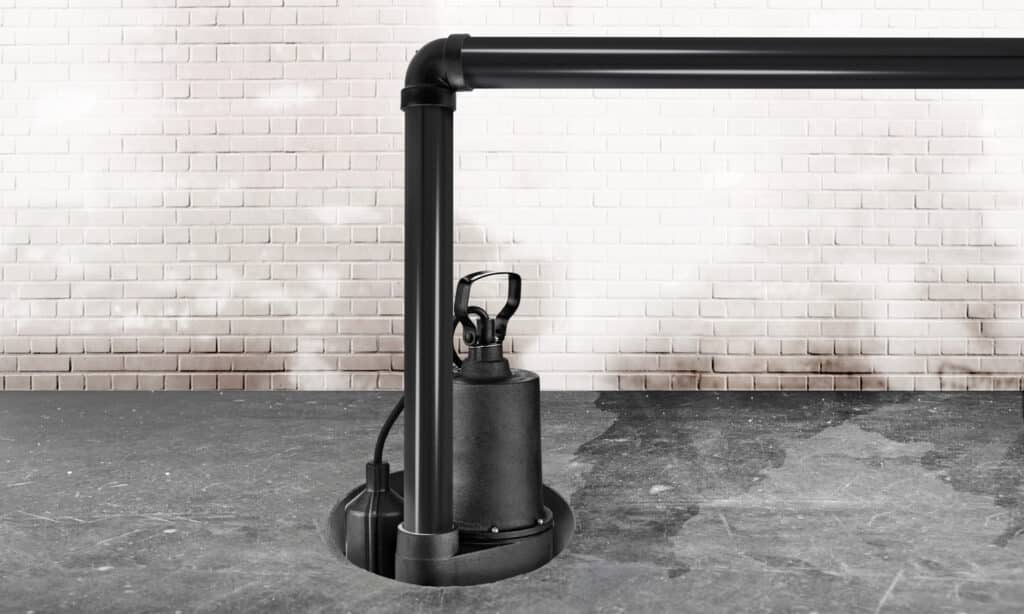Why Do You Need a Battery-Operated Sump Pump?

It’s a dark and stormy night…Yes, that’s how most horror stories start out and yes, that’s how many basements become flooded, too!
A flooded basement is a scary thought and for some, it’s a scary reality especially when the electric sump pump stops working and becomes as useful as a light bulb in a power outage.
But, before we dive into the reasons you should have a battery-operated, back-up sump pump, let’s start from the top and explain what a sump pump is and the purpose it serves.
A sump pump’s job is to remove any water that’s accumulated from drains and pumps in a water-collecting sump basin and pushes it out and away from the house.
More times than not, sump pumps are found in the basements of homes to prevent flooding.
Most sump pumps are powered by electricity and as we mentioned before, if the power goes out during a strong storm, you’re risking that your basement will become flooded if you don’t have a battery-operated back-up.
Three Reasons Why You Need a Battery Pump
Your current sump pump is old and overworked.
Electric sump pumps don’t last forever. In fact, the average lifespan of a sump pump is about 10 years.
If your sump pump has been on the fritz, it could be because it’s old and overworked.
A sump pump that’s not functioning at peak performance can lead to a malfunction and without any backup, you’re destined for a flooded basement.
That being said, in addition to an electric sump pump, you should consider a battery-operated, back-up sump pump, too. Doing so will provide an added layer of protection thanks to the battery back-up that serves as a secondary pump and will take over as the primary pump in case the main sump pump is to fail or malfunction.
Understanding when something isn’t working properly can save you money and aggravation.
You don’t have to be an experienced plumber to understand when your sump pump isn’t working to full capacity. Here are a couple examples of what to look for to provide additional protection for valuables and your finished basement:
- Listen to the motor – Believe it or not, listening to the motor can offer telltale signs that something’s wrong with your sump pump. Make sure that the motor and the pump are both running. From there, if water isn’t coming out, you’ll need to do some investigating. This could be the result of a clogged pipe or even a sticky valve.
- Test it – Perhaps the best way to make sure that your sump pump is working is to run water through it. Add enough water to raise the float until the pump kicks on. NOTE: just because you hear the pump running doesn’t mean that it’s actually working. That being said, you’ll have to watch and make sure that the water is getting pumped out of the hole to ensure its functionality.
You’ll have peace of mind knowing it’s working for you around the clock.
Adding a secondary, battery-operated pump to supplement your primary electric sump pump will give you the peace of mind knowing that whether the power is on or off, your basement will still be protected.
Plus, battery-operated sump pumps don’t require a charge which offers even more benefit to homeowners.
A battery-operated sump pump that’s properly installed will charge on its own and if the power is to go out, the inverter will automatically turn on and off, virtually eliminating any worry on your end.
Check out our sump pump offerings, and if you have any questions, please feel free to contact us!

